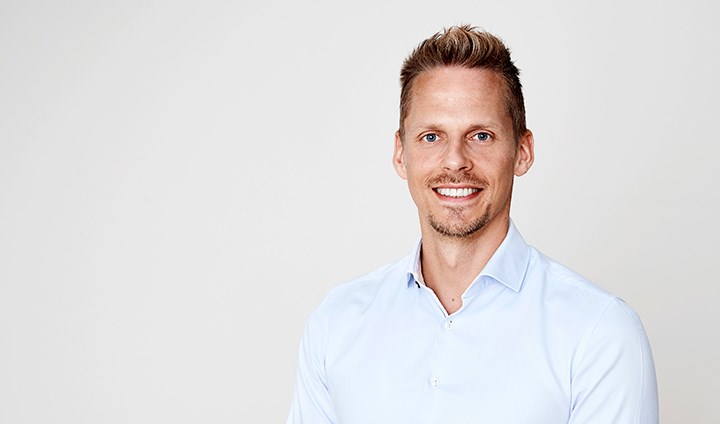Dimitri Beeckman - new professor 2022

Dimitri Beeckman is professor of nursing science and specialises in wounds. “The core of my research is patient perspective, interdisciplinarity and practical relevance,” he says.
1982 Born in Aalst, Belgium
2011 Obtained his PhD at Ghent University, Belgium, with his thesis Pressure ulcer prevention – Evidence-based tool development and tailored protocol implementation to improve clinical practice
2013 Professor of Nursing Sciences at Ghent University. Also visiting professor at the Royal College of Surgeons in Ireland (RCSI Dublin), visiting professor at the University of Southern Denmark (SDU) in Odense and an affiliated professor at Monash University in Melbourne.
2021 Professor of Nursing Sciences at Örebro University
Dimitri Beeckman is responsible for developing research at the Department of Health Sciences at Örebro University. As deputy head of department[, he is also responsible for internationalisation.
Dimitri Beeckman has a broad international network. In addition to his professorship in Örebro, Dimitri Beeckman is a professor at Ghent University, Belgium, where he has coordinated wound research since 2013. In addition, he is a visiting professor at several universities in Europe and Australia.
Several types of wounds in healthcare
Since 2018, Dimitri Beeckman has led the Swedish Centre for Skin and Wound Research (SCENTR) at Örebro University.
“This research is focused on developing and implementing evidence-based wound care in healthcare. We’re also working to find methods to prevent wounds,” he says.
The research includes several types of wounds addressed in healthcare. For example, Dimitri Beeckman has led one of the largest studies to date on preventing pressure ulcers, a project carried out in eight hospitals in Belgium that included 20 research collaborators.
“We investigated many materials, such as mattresses, pillows, support devices and dressings. The next step was to design a new method for assessing risks.”
He has been a member of the executive board for the European Pressure Ulcer Advisory Panel (EPUAP) since 2013, and between 2019 and 2021, he was president of the organisation. During his term, the focus was on digitalisation, sustainability, networking, and transparency.
Translated into 22 languages
In parallel with the research on pressure ulcers, Dimitri Beeckman has developed research on the prevention and treatment of incontinence-associated dermatitis (IAD). Results have led to updated risk assessment, prevention, and treatment – and a tool that can be used in healthcare worldwide.
Already translated into 22 languages, his research continues with funding from the Swedish Research Council (2021). The goal is to develop a method for assessing the risks for hospital patients suffering from skin lesions caused by incontinence. This project is carried out in collaboration with five Swedish hospitals.
Want to include the whole world
Research on the third type of damage, skin tears, has led to the introduction of the classification system for these injuries in 44 countries. Dimitri Beeckman has been chairman of the International Skin Tear Advisory Panel (ISTAP) since 2020. A skin tear is a wound caused when the skin’s layers are torn apart. The injury can occur in several ways, are painful and can become infected.
“We would like to have representatives from all over the world on board. This would mean that the model for prediction, assessment, prevention, and management of skin tears could reach even the most vulnerable people in the world,” he says.
ISTAP has a board of directors with representatives from all over the world and 3,500 members. The organisation publishes a wide range of scientific evidence, such as guidelines, consensus papers, and research articles.
Openness and creativity
As a researcher, Dimitri Beeckman has made more than 200 international scientific presentations in more than 30 countries and has been published in over 180 scientific publications in international journals.
“For me, open, creative and participatory leadership is fundamental to the growth and lasting success for organisations involved in wound care at the local, regional, national and international levels.”
